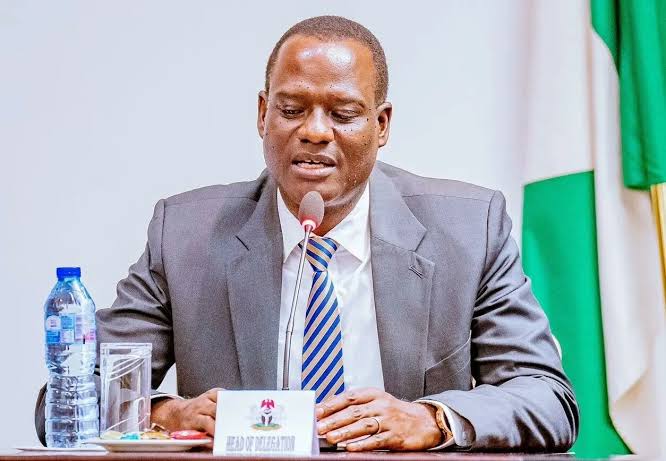The Chairman of the Tax Reform Committee, Taiwo Oyedele, has advocated for lower corporate tax rates, streamlined regulations, and a refined tariff structure to drive investment and stimulate economic growth in Nigeria.
Oyedele made the call on Wednesday during a public lecture held in Abuja as part of activities to mark his 50th birthday celebration.
He stressed the urgent need for an orderly tax structure to replace the current disjointed regime, warning that chaotic taxes tend to disproportionately affect the poor.
He reiterated that the tax reform measures include full income tax exemption for over one-third of workers, higher exemption thresholds for small businesses, and zero-rating essential consumptions.
He emphasized the importance of credible data, inclusive policies, and investing in people.
Oyedele also highlighted the need to refine the country’s tariff system, particularly by reducing rates on raw materials and intermediate products, to bring down production costs.
“We have priority sector incentives, boosting exports and providing tax relief to prevent public transition for Nigerian businesses operating internationally. Others are changes to income class laws to attract remote work opportunities, enabling Nigerian youths to thrive in the digital economy,” he said.
He further advised, “The government should focus on doing only what the private sector will not do, and collect the least amount of tasks in doing so without compromising the required minimum quality standard. The government should be intentional regarding non-inflationary spending priority and quality of spending.
“After all, that is the essence of the socio-economic contracts the people must seek first to understand because ignorance compounds vulnerability and steals opportunities. We must think independently, ask questions, engage and, most importantly, criticize constructively with the sole aim to build not to tear apart our nation,” he stated.
According to him, there is a need to adopt policy actions that support a strong and stable Naira, including allowing businesses to pay taxes in Naira even when they engage in trade that results in a comparative balance.
He lamented that the Nigerian tax system is riddled with outdated laws, a complicated administrative framework, low public confidence, and widespread tax evasion.
Speaking further, he emphasized the importance of prioritizing inclusion and national interest over sectional self-interest when making policy decisions.
He also advocated for reliance on credible data to guide policymaking, instead of popular opinion or sentiment.

